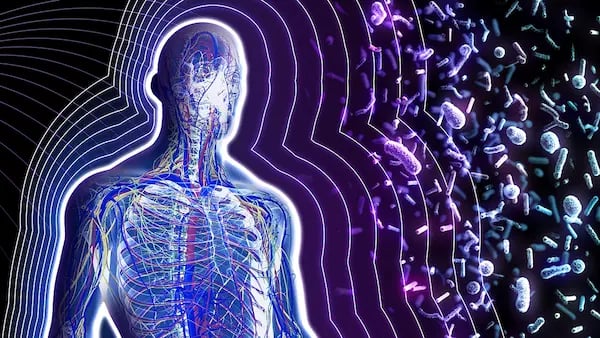Since 2012, we have redrawn the boundaries of how molecular detection technology can achieve optimal health outcomes. Our unprecedented testing platforms and products answer a range of urgent needs across defense, research, and patient care, offering cutting-edge, reliable solutions for global health challenges.
Our global health needs will not be solved in a vacuum. The challenges we are facing today are all overlapping–which means the solutions are all connected, too. Our pioneering, interdisciplinary solutions address issues faced by humans, animals, plants, and our shared environment. By solving these interwoven problems, we can improve health outcomes for all.

Our planet is struggling with a range of challenges spanning environmental, animal, and human health. The delicate balance of an ecosystem has more in common with the highly complex ecosystems of our own bodies than many people realize, and we cannot improve the health of one without the other. We are creating solutions that address the needs of both humans and our planet, because we know those needs all intersect.
At this moment, health care providers cannot reliably distinguish between bacterial and viral infections, which leads to overprescribing of antibiotics–and drives Antimicrobial Resistance (AMR). More than 40% of prescriptions are unnecessary, and WHO has identified AMR as a top 10 global public health threat. Our pioneering use of host response technology accurately differentiates bacterial infections from viral, which will reduce overprescribing, help manage infectious disease outbreaks, and improve patient outcomes.


Our bodies undergo subtle changes at the molecular level in response to stress, trauma, and infection. Each response has its own signature. Our innovative Host Response platform can “read” these signatures, distinguishing between viral, bacterial, and fungal infections, and helping clinicians make more informed decisions.
Our pioneering molecular detection technology makes getting reliable, data-driven results accessible–empowering anyone, anywhere to fight disease, improve global health, and solve wicked problems.










When people think about global health, they tend to think about far-flung locales and communities of people different...
401 North Broad St Suite 222 Philadelphia, PA 19108